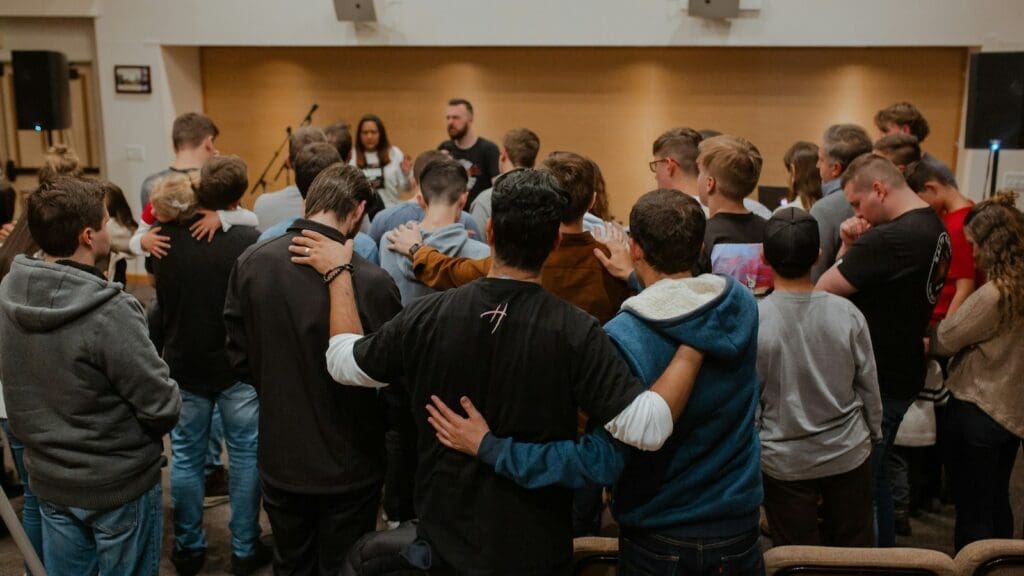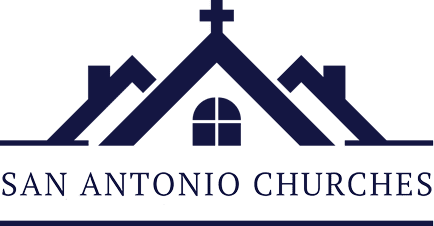
Uniting for Positive Local Impact
Faith communities play a crucial role in knitting the fabric of society, offering both spiritual guidance and practical support to individuals and the broader community. The shared values and collective sense of purpose that faith-based groups embody can foster a deep sense of unity and cooperation. They often serve as the backbone of local areas, not just as spaces for worship but as hubs for social action and community engagement. By coming together, these groups demonstrate a powerful capacity for initiating positive change, addressing local needs, and providing a support system for their members.
In many local areas, the impact of faith communities extends beyond their congregations. They are instrumental in promoting whole community resilience, by bridging gaps and building relationships between different faith groups, and between the faith-based and secular sectors. As forces for community development, faith communities can support vibrant neighborhoods by encouraging and enabling walkable, mixed-use environments, which enhances social interaction and economic activity.
Cultivating a sense of belonging and mutual support is intrinsic to many faith traditions. Through regular gatherings and proactive outreach, faith communities can strengthen the bonds of fellowship and community. Their inclusive actions often result in creating networks that support not only the spiritual but also the emotional and physical well-being of individuals. It is in these shared efforts that communities can find a collective strength and the ability to navigate the complexities of modern life.
Understanding Faith in Society
In exploring the role of faith within society, it is essential to recognize its multifaceted contributions to community cohesion and individual well-being. Faith acts as a foundational element in fostering social networks, promoting education, and underpinning the influential role of religious leaders.
The Interplay of Faith and Community
Faith communities often serve as the heartbeat of social and cultural life in many areas. These communities provide a sense of belonging and are integral in bringing together people from diverse backgrounds. They celebrate various traditions that enrich the local community, reflecting a tapestry of religious diversity. The interplay between faith and community also manifests in shared values and cooperative efforts toward common goals, enhancing the social fabric.
Faith Communities as Social Networks
Social networks within faith communities are robust channels of support and resources. Members of a faith community connect not only on a spiritual level but also socially, assisting each other in times of need. This network can be particularly strong in areas with substantial religious diversity where faith acts as a universal language, surpassing barriers and fostering understanding.
Religious Education and Literacy
Religious education contributes significantly to the literacy of a community, equipping individuals with the ability to understand and respect different belief systems. It promotes religious literacy, a crucial aspect of cultural competency which allows for meaningful dialogue and collaboration among diverse populations. Through such education, communities can better appreciate the nuances of different faiths and the role they play in individuals’ lives.
The Role of Religious Leaders
Religious leaders hold a unique position in influencing and guiding their communities. They act as pillars within religious communities, imparting wisdom, offering guidance, and spearheading initiatives that drive positive change. Their roles extend beyond spiritual leadership, often embodying the bridge between various cultural and social groups within contemporary society. These leaders play a pivotal part in fostering unity and promoting the values of compassion and service.
Faith in society acts as a glue, bringing together individuals of various backgrounds into a community knitted together by shared beliefs and mutual support. As faith communities interact with the larger society, they contribute to the social and cultural vibrancy while nurturing an environment conducive to dialogue, understanding, and respect.
Fostering Connection and Unity
The fabric of a community is strengthened by the connections its members share. Faith communities have the unique opportunity to cultivate these bonds through shared beliefs and values, fostering both connection and unity.
Creating Meaningful Relationships
Principles of faith often encourage the development of meaningful relationships. For instance, regular community meetings and events serve as a platform for members to connect on a deeper level. They may also adopt programs like mentorship or support groups, which embody the compassion and care integral to these communities.
Promoting Religious and Cultural Dialogue
Open dialogue is a cornerstone for understanding and respect among diverse faiths. Facilitating interfaith discussions and cultural exchanges can demystify misconceptions, paving the way for a unified community. By engaging in these dialogues, members gain a broader perspective and deepen their appreciation for different traditions.
Building Trust Through Shared Activities
Trust grows when community members participate in shared activities, such as community service projects or cultural celebrations. These activities not only foster a sense of unity, but also community engagement, as people work side-by-side towards a common goal. Faith leaders can play a pivotal role in organizing these events, thus reinforcing the community’s shared values and trust.

Community Development and Service
In communities worldwide, faith plays a pivotal role as a catalyst for collective action in areas of poverty, education, and civic responsibilities. Faith-based organizations often stand at the forefront, fostering development and providing essential services through impactful, compassionate outreach.
Addressing Poverty and Homelessness
Many community groups and faith-based organizations see it as their duty to alleviate poverty and homelessness. They provide food, shelter, and comprehensive support services. For instance, they may set up soup kitchens and temporary housing to serve those in need, making a tangible difference in the lives of the vulnerable.
- Services provided:
- Meals
- Shelter
- Counseling
- Employment assistance
These efforts not only meet the immediate needs but also aim at long-term poverty alleviation through capacity building and economic support.
Education and Development Initiatives
Education serves as a cornerstone for lifting communities out of poverty. Faith institutions often sponsor scholarships and operate schools to bolster academic opportunities. They offer tutoring programs, mentorship, and skills development, crucial for the economic development and sustainability of the community.
- Educational programs may include:
- After-school tutoring
- Adult literacy classes
- Vocational training
- Scholarship funds
Faith-Based Organizations in Civic Engagement
Through civic engagement, faith-based organizations inspire community members to take part in societal improvement. They frequently engage in public debates, mobilize volunteers, and advocate for policy changes. Moreover, these institutions can become a powerful force, galvanizing community action and influencing positive social change.
- Civic activities include:
- Voter registration drives
- Community forums and discussions
- Advocacy on social issues
- Volunteer recruitment and coordination
Such engagement demonstrates the influential role of religious institutions as engines driving community service and development.
Cultivating Community Support Networks
Faith communities play a pivotal role as a nexus of support, utilizing groups and gatherings to foster resilience and aid during trying times. This section explores intricate networks built on worship and mutual assistance that underpin community fortitude.
The Role of Worship and Prayer Groups
Worship and prayer are the bedrock of many faith communities, offering a space for both solace and solidarity. Regular worship services and prayer meetings become avenues through which community members support one another, creating a web of interpersonal connections. Families often extend this support outside the walls of worship centers, carrying the spirit of communal care into their neighborhoods and schools.
- Families and Schools: Engagement in worship and prayer groups often filters down to family and educational settings, promoting values that embolden community ties and collective well-being.
Support During Crises and Natural Disasters
In times of crisis, whether due to natural disasters or other emergencies, faith communities frequently emerge as pivotal actors in relief efforts. They collaborate with entities like FEMA and the National Disaster Interfaiths Network, providing critical resources and spiritual support to those affected.
- Faith Community and FEMA: Faith groups liaise with FEMA to offer both spiritual care and practical assistance, demonstrating the caring ethos that typifies these communities.
- National Disaster Interfaiths Network: Aligning with networks such as the National Disaster Interfaiths Network, faith gatherings mobilize quickly to coordinate their efforts, ensuring aid where it’s most needed.
Advocacy, Justice, and Social Change
Faith communities often excel in championing the common good, rooted in their core values, by fostering robust partnerships across various sectors of society. These communities serve not only as places of worship but also as vital agents for social justice initiatives. Their commitment to uplifting the marginalized allows them to drive progress at both local and national levels.
Research and evidence play a significant role in grounding these efforts, enabling faith groups to advocate effectively for policies that reflect their moral convictions and address societal inequities. Community engagement is integral, as congregants and leaders work hand-in-hand with government entities and non-profit organizations to enact change.
Within this context, faith communities view justice as an actionable commitment to their neighbours and nation. They often leverage their collective national identity to hold institutions accountable, support ethical legislation, and ensure that voices of the underrepresented are heard.
| Focus Area | Role of Faith Communities |
|---|---|
| Advocacy | Mobilizing for laws and policies that align with moral values |
| Justice | Ensuring equitable treatment for all citizens |
| Social Change | Leading initiatives that foster community improvement |
| Community Engagement | Building solidarity and support among diverse groups |
In summary, through their advocacy and network of influence, faith communities embody a living testament to the transformative power of united action for justice and social change. By encouraging caring and pious collaboration, they remind individuals of their shared humanity and the importance of striving toward a more equitable world.
